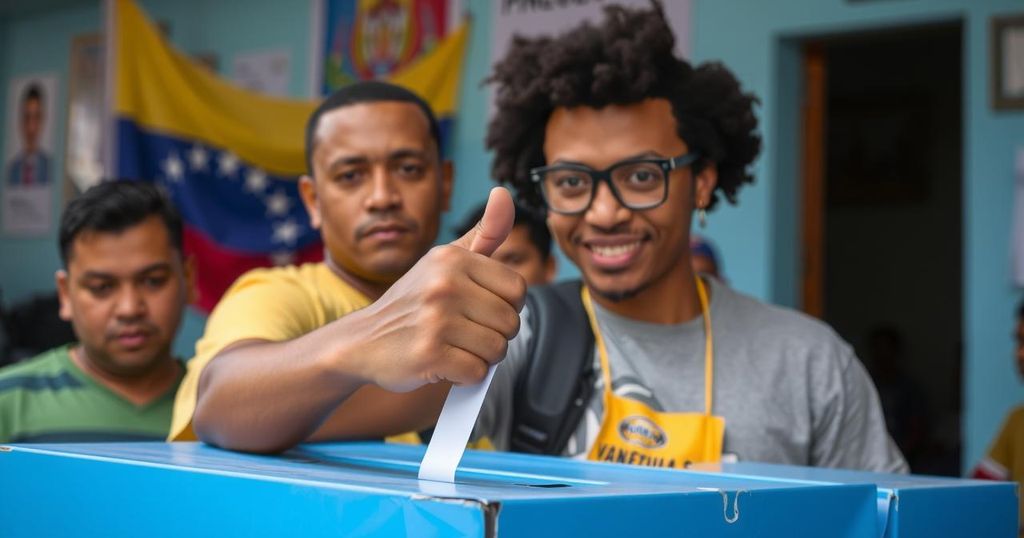Venezuela to Elect 30,000 Communal Peace Judges in Local Elections

On December 15, 2024, Venezuelans will vote to elect 30,000 communal peace judges to enhance grassroots democracy. Taking place in over 4,000 circuits, the elections follow President Maduro’s call for deeper community involvement in governance, fostering local conflict resolution through a newly reformed legal framework. All citizens 15 and older are eligible, and candidates commit to addressing local needs and dynamics.
On December 15, 2024, Venezuelan citizens are set to participate in local elections aimed at selecting 30,000 “communal peace judges” as part of the nation’s initiative to enhance grassroots democracy. This electoral process will occur across more than 4,000 communal circuits, including 481 indigenous communities, where voters will elect two or three judges per circuit from a pool of over 52,000 candidates. Eligible participants include all individuals aged 15 and older, with the National Electoral Council facilitating polling at nearly 4,800 centers, managed by community members.
President Nicolás Maduro emphasized the significance of this electoral exercise during a recent assembly in Caracas, aiming to broaden popular power. He remarked, “What we are undertaking is a significant step toward the future—a genuine democracy that goes beyond superficial representation. We are striving for a grassroots, direct democracy rooted in values and conscience.”
The local elections follow a process where candidates engaged in door-to-door campaigns to present their conflict resolution proposals and governing ideas. Candidates must meet specific criteria, including age, residency within their communities for three years, and a positive reputation. Under the newly enacted “Organic Law of Communal Peace Justice,” the designated peace judges will mediate various local disputes without resorting to formal judicial procedures, addressing issues such as tenancy and community conflicts, while being responsible for resolving disputes under prescribed limits.
In conjunction with the implementation of peace judges, the law stipulates their election every four years, enhancing community involvement in local governance. This local empowerment approach arises from previous popular consultations where communities allocated state funds for local projects.
The establishment of peace judges represents a novel method of democratizing conflict resolution at the community level, fostering a deeper connection between citizens and their representatives, aiming to encourage community cohesion and address grievances more effectively.
The elections for communal peace judges represent a significant development in Venezuela’s political landscape as the nation aims to solidify its commitment to grassroots democracy. The practice of community-led governance through elected local officials is intended to enhance citizens’ participation in decision-making processes. By creating an accessible judicial avenue for conflict resolution within communities, the Venezuelan government seeks to address local issues directly and mitigate reliance on formal judicial systems. This initiative aligns with the ongoing efforts by the ruling party to deepen the revolution’s participatory aspects, moving away from traditional liberal democratic frameworks.
In summary, the upcoming elections for communal peace judges in Venezuela signify a transformative endeavor towards fostering grassroots democracy and community engagement. By empowering local representatives to manage conflicts and promote social harmony, the Venezuelan government aims to create a more inclusive governance model that directly addresses the concerns of its citizens. This initiative reflects a broader commitment to developing democratic structures rooted in local realities, setting a precedent for future engagements in community governance.
Original Source: venezuelanalysis.com







